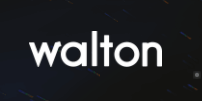In a groundbreaking development that’s set to redefine the European fintech scene, Berlin’s own Trade Republic has secured a full banking license from the European Central Bank. This marks a monumental shift for the German fintech unicorn, propelling it from a digital trading platform to a comprehensive banking powerhouse.
Trade Republic’s ascent to this new height of fintech innovation has been nothing short of meteoric. With a valuation of $5.3 billion following a record-breaking funding round in 2021, the company has established itself as a leading figure in the world of digital finance. Now, with the ability to hold customer deposits and delve into the lending market, Trade Republic is poised to offer a more holistic financial service, changing how we interact with our finances in the digital era.
The journey to this point has been one of strategic partnerships and smart navigation through the financial landscape. Previously dependent on banking partners like Solaris AE, Deutsche Bank AG, and others to manage customer funds, Trade Republic is now set to take control of these operations directly. This independence not only streamlines their services but also offers enhanced efficiency and integration for their over two million customers across 17 European countries. The company’s diverse offerings, including commission-free trading and a monthly ETF savings plan in partnership with BlackRock, have already set it apart in the fintech space.
Central to Trade Republic’s success has been its adept handling of regulatory challenges. Co-founder Christian Hecker highlighted this at the Slush tech conference in Helsinki, noting the importance of working closely with regulators like the German BaFin. Hecker’s insights reveal the critical role of regulatory compliance in achieving significant growth, a lesson that resonates deeply in the fintech sector.
Trade Republic’s approach to building its banking infrastructure is also noteworthy. Unlike many of its peers, the company has developed its entire banking system in-house, eschewing the need for external banking software partners. This decision not only exemplifies Trade Republic’s technical capabilities but also its commitment to providing a seamless and integrated user experience.
This strategic pivot comes at a critical juncture, as Trade Republic prepares to diversify its revenue streams in anticipation of regulatory shifts in the EU. The impending ban on payment for order flow (PFOF), a key revenue source for the company, has prompted proactive measures, including lobbying efforts in Brussels. PFOF, a common practice among commission-free trading platforms like Trade Republic and Robinhood, involves platforms receiving rebates from large market makers in return for customer trade orders.
As we observe Trade Republic transition into a fully-fledged banking entity, we’re not just witnessing the evolution of a company; we’re observing a seismic shift in the European financial industry. This transformation signals a new era in banking and investing – one that’s more integrated, dynamic, and accessible than ever before.












